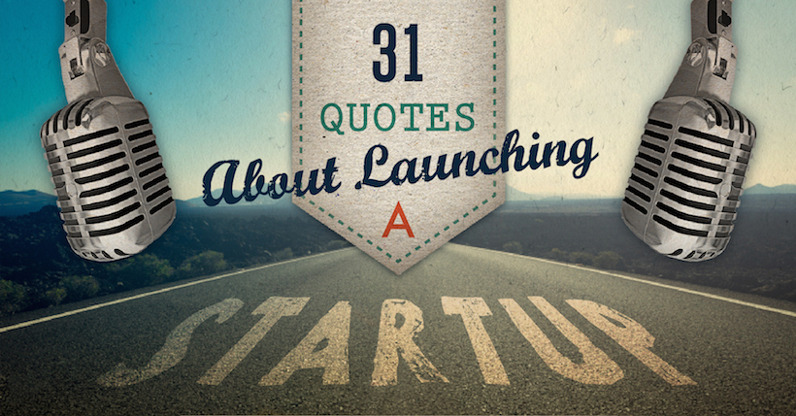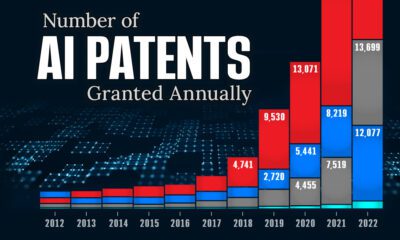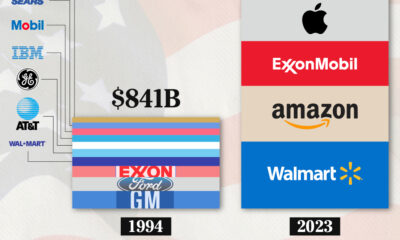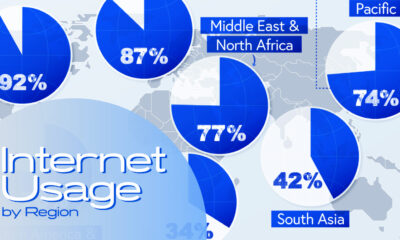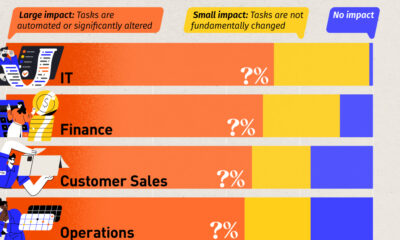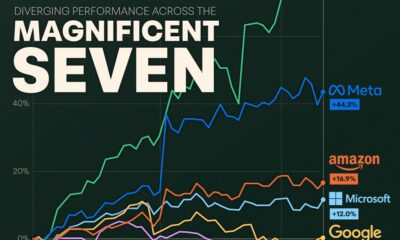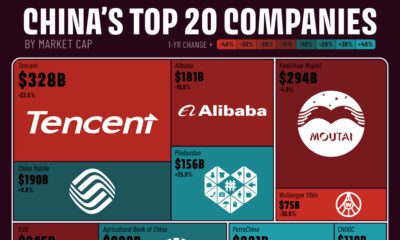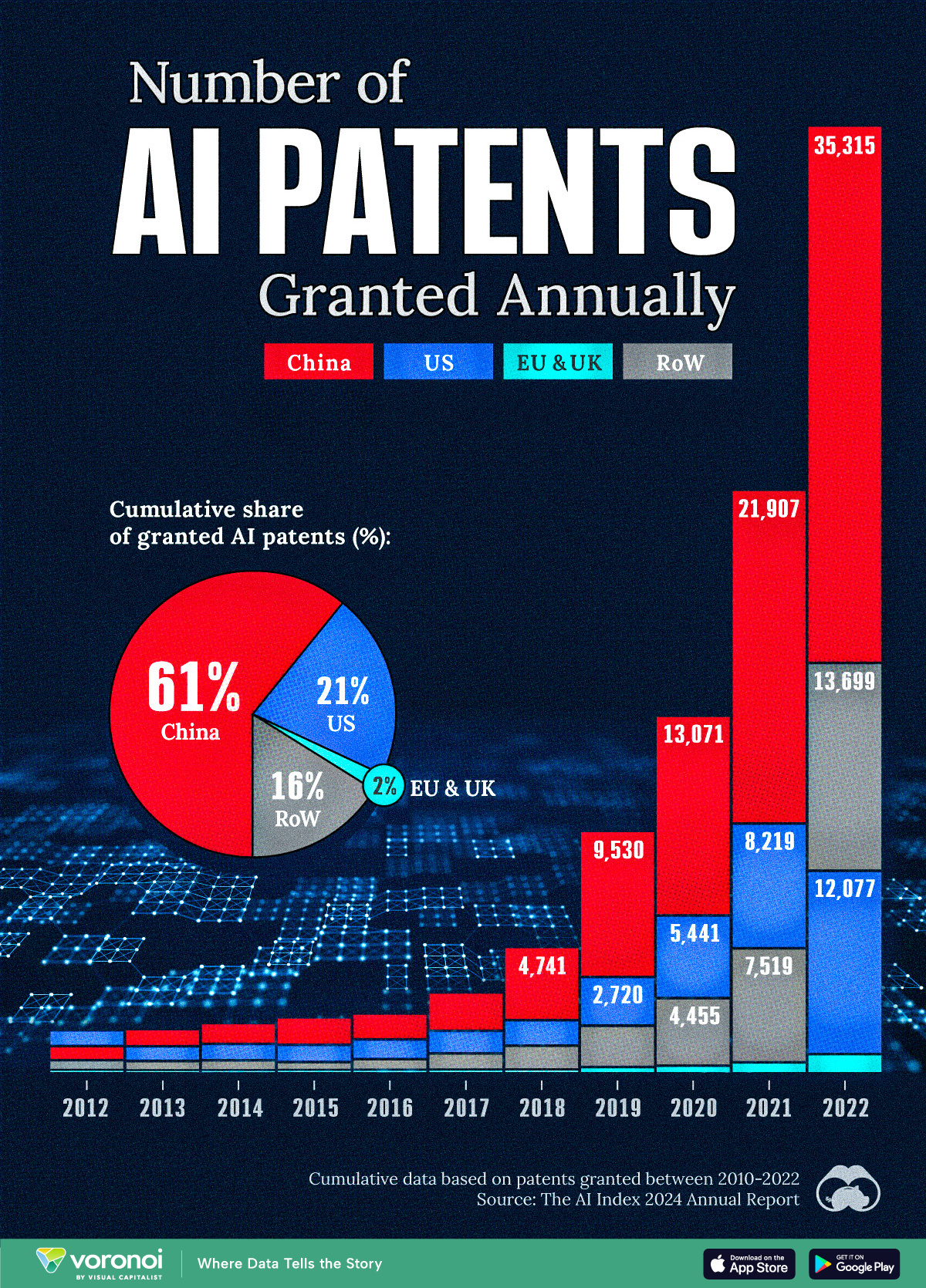Technology
31 Quotes on How to Launch a Startup
Startup culture has captured our collective imaginations, and today there are more people dabbling in entrepreneurship than ever before.
The fast pace, the pivots, and the setbacks involved in a new venture all make for an exciting day-to-day where anything can happen. And at the end of the road, with a little luck and some hard work, there is even potential to make a significant return on investment: a take-out offer, or an IPO can be a life changing event for one’s career and financial security.
But the startup life is also grueling and unforgiving. To achieve success, an entrepreneur needs have an incredible amount of perseverance and resolve – the fact is that there is no shortage of obstacles that can threaten to instantly bankrupt or disempower any new venture.
How to Launch a Startup, in Quotes
Today’s infographic from Wrike serves as a guide to help those aspiring entrepreneurs that aim to go down this challenging but potentially rewarding path.
See all 31 quotes on how to launch a startup, from notable founders and financiers, in the infographic below:

The experts make clear that to launch a startup requires deep thought and action in the following areas:
Courage and Confidence
Taking a chance can be scary, but don’t be afraid to take the leap of faith on a good idea.
Solve a Problem
Don’t start a company just to be an entrepreneur – but instead solve a real problem. If your product helps to improve other people’s lives, you will always have a market.
Build Your Product
Anyone can come up with an idea to launch a startup, but when it comes to building a product it is all about the execution. The aptitude for translating a mere concept to a physical reality is paramount. Put more succinctly, as Michael Dell says: “Ideas are a commodity. Execution of them is not.”
The Customer is Right
Henry Ford and Steve Jobs have shown us that the average customer cannot always envision the future, whether it is the automobile or the iPhone. However, once you have a product solidified, testing it with customers will give you a wealth of feedback that could change the entire course of product development. Be responsive to this feedback.
Iterate
Make sure everything that can be measured is properly tracked. Update your approach based on this data until it’s clear that the product is a winner.
The Merits of Bootstrapping
Bootstrapping is often underrated. Smart bootstrapping allows you to address big problems without the distractions or opinions of investors.
Technology
Visualizing AI Patents by Country
See which countries have been granted the most AI patents each year, from 2012 to 2022.
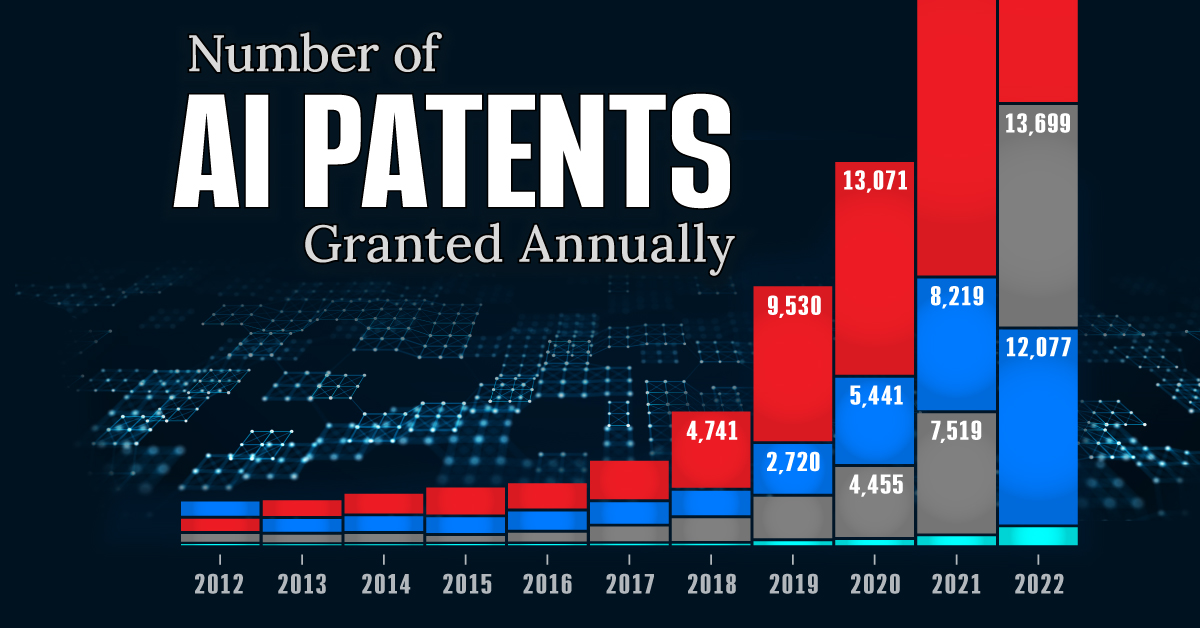
Visualizing AI Patents by Country
This was originally posted on our Voronoi app. Download the app for free on iOS or Android and discover incredible data-driven charts from a variety of trusted sources.
This infographic shows the number of AI-related patents granted each year from 2010 to 2022 (latest data available). These figures come from the Center for Security and Emerging Technology (CSET), accessed via Stanford University’s 2024 AI Index Report.
From this data, we can see that China first overtook the U.S. in 2013. Since then, the country has seen enormous growth in the number of AI patents granted each year.
| Year | China | EU and UK | U.S. | RoW | Global Total |
|---|---|---|---|---|---|
| 2010 | 307 | 137 | 984 | 571 | 1,999 |
| 2011 | 516 | 129 | 980 | 581 | 2,206 |
| 2012 | 926 | 112 | 950 | 660 | 2,648 |
| 2013 | 1,035 | 91 | 970 | 627 | 2,723 |
| 2014 | 1,278 | 97 | 1,078 | 667 | 3,120 |
| 2015 | 1,721 | 110 | 1,135 | 539 | 3,505 |
| 2016 | 1,621 | 128 | 1,298 | 714 | 3,761 |
| 2017 | 2,428 | 144 | 1,489 | 1,075 | 5,136 |
| 2018 | 4,741 | 155 | 1,674 | 1,574 | 8,144 |
| 2019 | 9,530 | 322 | 3,211 | 2,720 | 15,783 |
| 2020 | 13,071 | 406 | 5,441 | 4,455 | 23,373 |
| 2021 | 21,907 | 623 | 8,219 | 7,519 | 38,268 |
| 2022 | 35,315 | 1,173 | 12,077 | 13,699 | 62,264 |
In 2022, China was granted more patents than every other country combined.
While this suggests that the country is very active in researching the field of artificial intelligence, it doesn’t necessarily mean that China is the farthest in terms of capability.
Key Facts About AI Patents
According to CSET, AI patents relate to mathematical relationships and algorithms, which are considered abstract ideas under patent law. They can also have different meaning, depending on where they are filed.
In the U.S., AI patenting is concentrated amongst large companies including IBM, Microsoft, and Google. On the other hand, AI patenting in China is more distributed across government organizations, universities, and tech firms (e.g. Tencent).
In terms of focus area, China’s patents are typically related to computer vision, a field of AI that enables computers and systems to interpret visual data and inputs. Meanwhile America’s efforts are more evenly distributed across research fields.
Learn More About AI From Visual Capitalist
If you want to see more data visualizations on artificial intelligence, check out this graphic that shows which job departments will be impacted by AI the most.
-
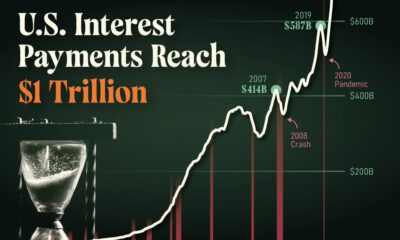
 Markets1 week ago
Markets1 week agoU.S. Debt Interest Payments Reach $1 Trillion
-

 Markets2 weeks ago
Markets2 weeks agoRanked: The Most Valuable Housing Markets in America
-

 Money2 weeks ago
Money2 weeks agoWhich States Have the Highest Minimum Wage in America?
-

 AI2 weeks ago
AI2 weeks agoRanked: Semiconductor Companies by Industry Revenue Share
-

 Markets2 weeks ago
Markets2 weeks agoRanked: The World’s Top Flight Routes, by Revenue
-

 Countries2 weeks ago
Countries2 weeks agoPopulation Projections: The World’s 6 Largest Countries in 2075
-

 Markets2 weeks ago
Markets2 weeks agoThe Top 10 States by Real GDP Growth in 2023
-

 Money2 weeks ago
Money2 weeks agoThe Smallest Gender Wage Gaps in OECD Countries

